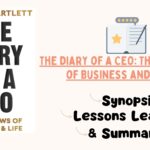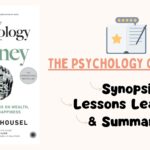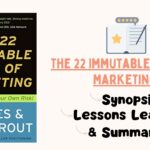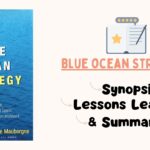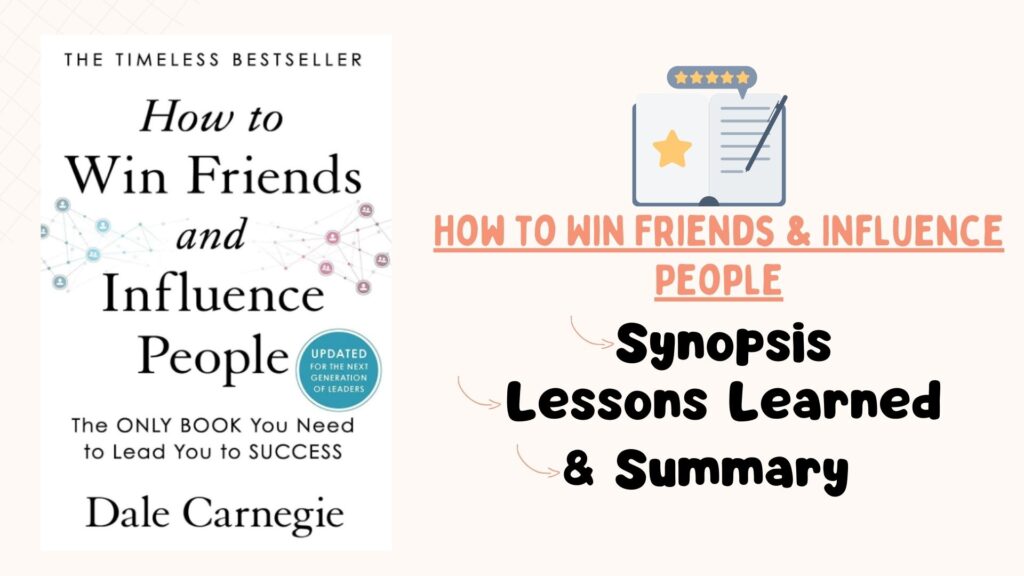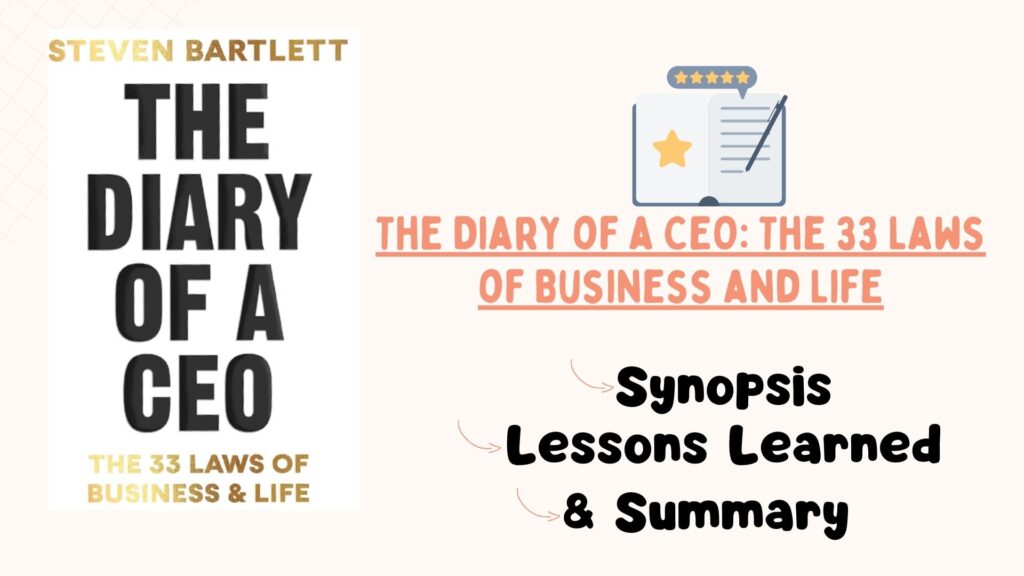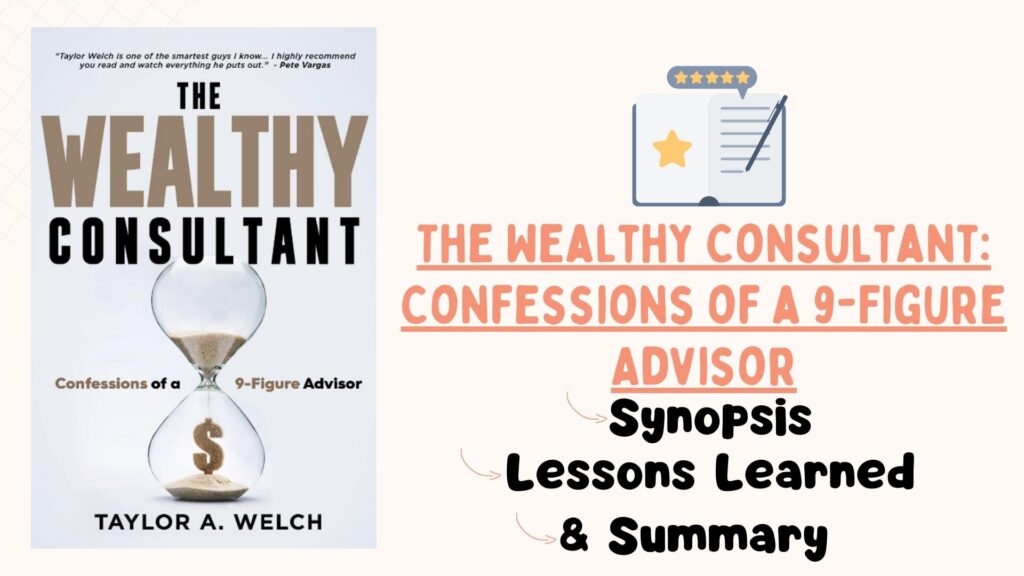Greetings, fellow sales enthusiasts! Today, I want to share with you some profound sales lessons that I’ve learned from reading “How to Win Friends & Influence People” by Dale Carnegie. This timeless classic has been an absolute game-changer for me, and I believe it holds invaluable insights for anyone looking to up their sales game. Whether you’re a seasoned sales pro or just starting out in the industry, the tips and strategies outlined in this book will undoubtedly elevate your approach and help you close more deals.
Throughout my journey as an entrepreneur and salesperson, I’ve come to realize that mastering the art of sales isn’t just about pushing products or services onto potential customers. It’s about building genuine connections, understanding human psychology, and empowering others to make decisions that benefit them. In this blog post, I’ll dive into some of the most powerful lessons from “How to Win Friends & Influence People” and share actionable tips that will help you get better at sales. So sit back, grab a pen and paper, and get ready to revolutionize your approach to sales!
Key Takeaways:
- Empathy is key: Understanding the needs and emotions of your customers is crucial in sales. Always put yourself in their shoes and show genuine interest in their concerns.
- Building relationships: Focus on creating long-term relationships rather than short-term sales. Invest time in getting to know your clients and building trust.
- Listening is a superpower: Effective listening is a powerful tool in sales. It allows you to understand your customer’s needs and tailor your pitch accordingly.
- Seek first to understand, then to be understood: By truly understanding your customer’s perspective, you can better address their concerns and effectively communicate the value of your product or service.
- Don’t criticize, condemn or complain: Negative language can harm relationships and hinder sales. Instead, focus on positivity and constructive communication.
- Be genuinely interested in others: Show sincere interest in your customers and their needs. This builds trust and makes them more likely to engage with you.
- Always look for win-win solutions: Focus on finding solutions that benefit both you and your customer. This fosters a positive, mutually beneficial relationship.
The Art of Understanding Human Psychology
Obviously, one of the most crucial aspects of sales is understanding human psychology. It’s about connecting with people on a deeper level, understanding their needs, and building a relationship based on trust and empathy. And that’s exactly what I learned from reading ‘How to Win Friends & Influence People’ by Dale Carnegie.
Lesson One: The Sweetest Sound in Any Language
Sweetest sound in any language? It’s the sound of one’s own name. People love to hear their name, it’s music to their ears. So, when you’re in sales, remember to use your prospect’s name. Whether it’s in an email, over the phone, or in person, be sure to use their name. It instantly creates a connection and shows that you value and respect them as an individual.
Sweetest sound is not just a physical name but the sound of appreciation and recognition. For example, if someone has achieved something, acknowledging their efforts and expressing genuine happiness for their success can go a long way in building a meaningful relationship.
Lesson Two: Why Being Genuinely Interested in People Pays Off
Authentic interest in people pays off big time in sales. It’s not just about pretending to care, but actually taking the time to understand your prospects and their needs. When you show authentic interest in someone, they can sense it. It builds trust and rapport, making them more receptive to your sales pitch. So, next time you’re in a meeting or on a call, focus on really listening to what the other person is saying. Ask thoughtful questions and show that you’re genuinely interested in helping them solve their problems.
The key to being authentic is to focus on the other person and their needs, rather than just thinking about making a sale. When you approach sales with a genuine desire to help others, it creates a positive and authentic energy that can be felt by your prospects.
The Strategies to Influence and Persuade
Now, let’s talk about the strategies to influence and persuade. Whether you’re in sales or just trying to win people over in your personal life, mastering the art of persuasion is essential for success. In his book “How to Win Friends & Influence People,” Dale Carnegie shares valuable insights and strategies that can help you become more influential and persuasive in your interactions with others.
Lesson Three: The Art of Listening
For many salespeople, the common misconception is that persuasion is all about talking and convincing. However, the art of listening is often more powerful than the art of speaking. Carnegie emphasizes the importance of listening to others and understanding their perspectives. When you actively listen to your prospects, you gain valuable insights into their needs, desires, and pain points, which allows you to tailor your sales pitch more effectively.
Lesson Four: How to Win People to Your Way of Thinking
Influence plays a significant role in winning people over to your way of thinking. Instead of trying to force your ideas onto others, Carnegie suggests using empathy and understanding to persuade them to see things from your perspective. By showing genuine interest in their thoughts and feelings, you can build rapport and trust, making it easier to guide them toward your desired outcome.
Plus, acknowledging the other person’s viewpoint and finding common ground sets the stage for a more collaborative and mutually beneficial relationship.
Building Long-Term Relationships for Continuous Sales
Despite the ever-changing landscape of sales strategies, one thing remains constant: the importance of building long-term relationships with your clients and customers. In the world of sales, it’s not just about making a one-time transaction, but rather about cultivating lasting connections that lead to continuous sales and customer loyalty.
Lesson Five: How to Make People Feel Important and Appreciated
People want to feel valued and appreciated, and this extends to the world of sales. By taking the time to truly listen to your customers, understand their needs, and show genuine appreciation for their business, you can foster a sense of loyalty and trust that will keep them coming back for more. Whether it’s a personalized thank-you note, a follow-up call to check in on their satisfaction, or a small gesture of gratitude, making people feel important and appreciated is a powerful way to solidify long-term relationships.
Lesson Six: The Role of Consistency and Sincerity
To build lasting relationships in sales, consistency and sincerity are key. Consistently delivering on your promises and providing exceptional service builds trust and reliability, while sincerity in your interactions conveys authenticity and builds credibility. When your customers know they can count on you to consistently deliver value and do so with sincerity, they are more likely to remain loyal and continue to choose your products or services.
Strong relationships are built on consistency and sincerity. By consistently showing up for your customers and sincerely caring about their needs, you can create loyalty and trust that will keep them coming back to you time and time again.
Practical Applications and Real-World Tactics
For any sales professional looking to up their game, applying the timeless principles of Dale Carnegie’s “How to Win Friends & Influence People” can make a world of difference. Let’s dive into some practical applications and real-world tactics to help you implement these strategies into your sales approach.
Putting Lessons into Practice: Tools and Exercises
Into putting these powerful lessons into practice, it’s essential to have the right tools and exercises at your disposal. One effective tool is the use of role-playing scenarios with colleagues or even with friends and family. *Practicing difficult conversations, objections handling, or even just getting comfortable with the language of influence can sharpen your skills and boost your confidence.* Another exercise is to create a weekly goal of initiating genuine conversations with new people. *This could be at networking events, on social media, or even in your local community.*
Leveraging Social Media to Apply Dale Carnegie’s Principles
Tools into the digital age, leveraging social media is a game-changer when it comes to applying Dale Carnegie’s principles. Use platforms like LinkedIn, Twitter, and Instagram to connect with potential clients, engage in meaningful conversations, and showcase your expertise. *By consistently sharing valuable content, responding to comments, and initiating conversations, you can position yourself as a trusted resource and build lasting relationships.*
It’s crucial to remember that the principles of building genuine relationships and influencing people are timeless, whether you’re interacting face-to-face or through a screen. *Social media simply provides a new and powerful platform to apply these principles and expand your reach.* By leveraging these platforms, you can connect with prospects on a more personal level and establish yourself as a trusted authority in your industry.
Overcoming Obstacles and Rejections
Unlike what some people may believe, sales is not just about closing deals and making money. It’s also about dealing with rejection and overcoming obstacles. In fact, the ability to handle objections and rejections is what separates the average salesperson from the top performers. As I delved into the timeless classic ‘How to Win Friends & Influence People’ by Dale Carnegie, I learned some valuable lessons on how to navigate through the challenges of sales.
Common Sales Objections and the Carnegie Way of Overcoming Them
To be successful in sales, it’s crucial to anticipate and address common objections that prospects may have. Carnegie emphasizes the importance of empathizing with the customer and understanding their perspective. By actively listening to their concerns and acknowledging them, you can build trust and credibility. Instead of arguing or pushing back, Carnegie suggests finding common ground and steering the conversation towards a solution that benefits both parties. This approach not only helps in overcoming objections but also in building long-term relationships with clients.
The Power of Persistence without Annoyance
Common obstacles in sales often come in the form of persistent rejections. However, Carnegie advocates for a different approach to persistence – one that is assertive yet respectful. Instead of bombarding prospects with relentless follow-ups, he encourages salespeople to provide value and stay top-of-mind in a non-intrusive manner. This approach not only demonstrates your commitment to solving their problems but also sets you apart from the competition. By maintaining a persistent yet unobtrusive presence, you increase the chances of converting a ‘no’ into a ‘yes’.
Obstacles and rejections are inevitable in the world of sales, but with the right mindset and approach, they can be turned into opportunities for growth and success. By employing the strategies recommended by Carnegie, sales professionals can navigate through objections and rejections with confidence and grace, ultimately turning them into valuable learning experiences.
The Future of Sales: Blending Carnegie’s Timeless Wisdom with Modern Techniques
To truly understand the future of sales, we must first look to the past. Dale Carnegie’s timeless principles in How to Win Friends & Influence People laid the foundation for effective salesmanship, emphasizing the importance of empathy, authenticity, and building genuine relationships. However, in today’s digital age, sales techniques have evolved to incorporate technological advancements and a deeper understanding of emotional intelligence.
The Evolution of Sales in the Digital Age
Sales in the digital age have revolutionized the way businesses and consumers interact. With the proliferation of online platforms and social media, the sales process has shifted from traditional face-to-face interactions to virtual selling. Sales professionals now have access to a wealth of data and analytics, allowing them to personalize their approach and anticipate consumer needs more effectively than ever before.
Next-Level Sales: Integrating Emotional Intelligence and Technological Tools
Sales in the modern era require a delicate balance between emotional intelligence and technological tools. While data-driven insights and automation can optimize efficiency, the human touch remains indispensable in fostering trust and genuine connections. This fusion of human empathy and cutting-edge technology empowers sales professionals to deliver personalized experiences that resonate with today’s discerning consumers.
Conclusion
So, after reading “How to Win Friends & Influence People” and reflecting on the tips to get better at sales, I’ve come to the conclusion that sales ultimately come down to building genuine relationships with people. It’s not just about pushing a product or service, but about truly understanding the needs and desires of your customers and finding ways to add value to their lives. The book taught me that by focusing on the other person’s interests and making them feel important, you can create a win-win situation where both parties benefit.
Additionally, I’ve learned that authenticity and empathy are essential qualities for successful salespeople. People can sense when you’re being insincere, so it’s important to approach every interaction with genuine care and understanding. By being a good listener and showing empathy, you can build trust and rapport with your customers, which ultimately leads to better sales outcomes. Overall, this book has given me valuable insights that I will carry with me in my sales career, and I’m excited to put them into practice and see the positive impact they can have on my business.
FAQ
Q: What are the key sales lessons from “How to Win Friends & Influence People”?
A: The key sales lessons from “How to Win Friends & Influence People” include prioritizing empathy, understanding the other person’s point of view, and building genuine relationships based on trust and respect.
Q: How can I get better at sales?
A: To get better at sales, you need to focus on providing value and solving your customers’ problems instead of just pushing a product or service. It’s about listening, empathizing, and genuinely caring about your customers’ needs.
Q: What role does influence play in sales?
A: Influence is crucial in sales because it’s not just about persuading someone to buy; it’s about creating a positive impact and building long-term relationships. Genuine influence comes from understanding and addressing the needs and concerns of your customers.
Q: How can I apply the principles of “How to Win Friends & Influence People” to sales?
A: Apply the principles of “How to Win Friends & Influence People” to sales by focusing on listening, showing appreciation, and genuinely caring about your customers. Building rapport and trust is key to successful sales.
Q: What are some actionable tips to improve sales performance?
A: Some actionable tips to improve sales performance include active listening, asking open-ended questions, being genuinely interested in your customers, and constantly seeking ways to provide value and solve their problems. It’s about putting the customer first, always.


